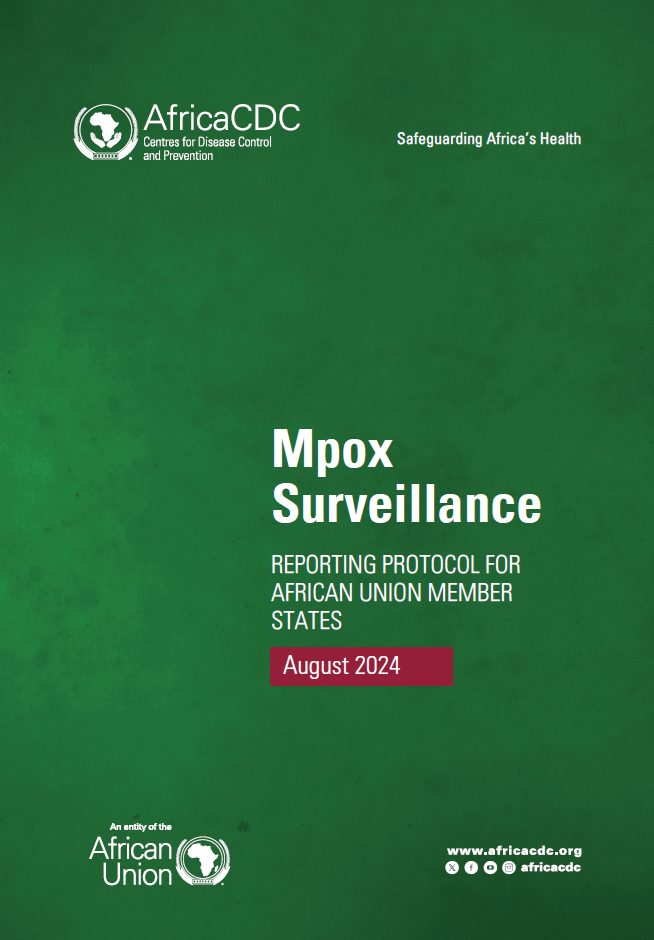Introduction
Mpox is a zoonotic infectious disease caused by the monkeypox virus (MPXV). The disease presents symptoms similar to smallpox but with lesser severity. The first human case of mpox was recorded in 1970 in the Democratic Republic of the Congo (DRC) and has subsequently been recognized as an endemic disease in several central and western African countries. There are two known clades of MPXV: clade I, previously called the Congo Basin clade with clade Ia and clade Ib (first identified in 2023) subtypes; and clade II, previously called the West African clade, which includes subclades IIa and clade IIb.
Since 2022, the African continent has been significantly affected by multi-country mpox outbreaks. From 1 January 2022 to 1 August 2024, a total of 42,260 cases and 1,537 deaths of mpox have been reported from 18 AU MS: Benin, Burundi, Cameroon, Central Africa Republic (CAR), Congo, Democratic Republic of Congo (DRC), Egypt, Ghana, Liberia, Morocco, Mozambique, Nigeria, Rwanda, Sudan and South Africa. Compared to 2022, there was a 79% increase in the number of cases reported in 2023. Looking at similar reporting periods in 2023 and 2024, there was a 98% increase in the number of cases reported in 2024 compared to 2023.
In 2024, five countries (Burundi, Côte d’Ivoire, Kenya, Rwanda, and Uganda) with no recent history of an mpox outbreak, have confirmed and reported cases of mpox2. Initial epidemiological investigations have highlighted cross-border movement as the key driver for spread, with most cases reporting travel history to DRC.
On 13 August 2024, the Africa Centres for Disease Control (Africa CDC) declared the multi-country mpox outbreak a public health emergency of continental security, with strong recommendations to improve surveillance and vaccine deployment in all AU Member States. On 14 August 2024, the WHO Director-General declared mpox outbreak a public health emergency of international concern (PHEIC).
